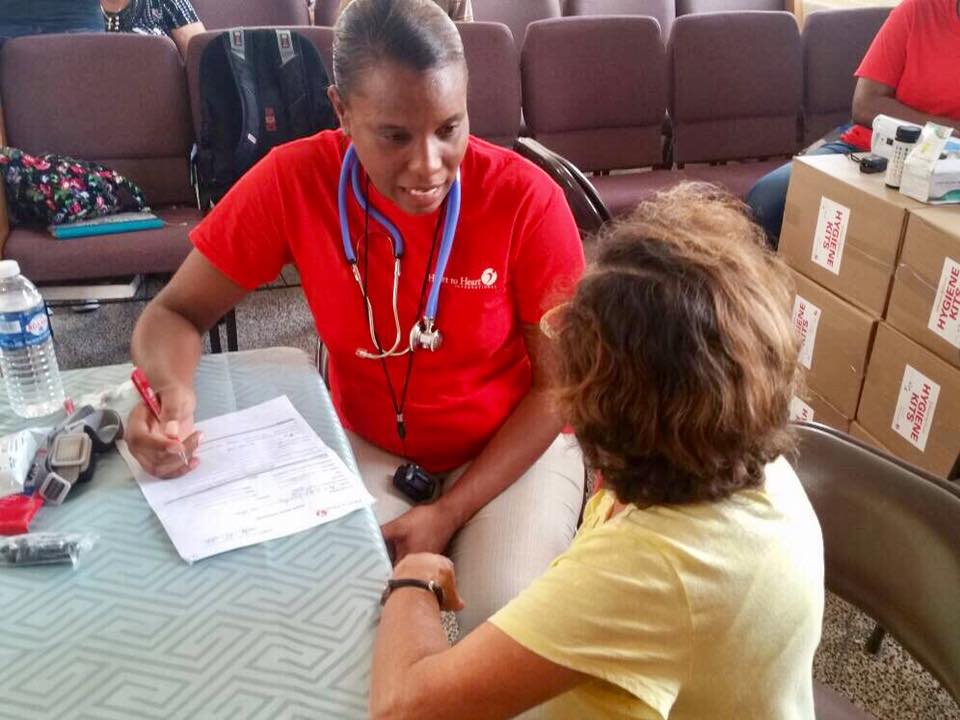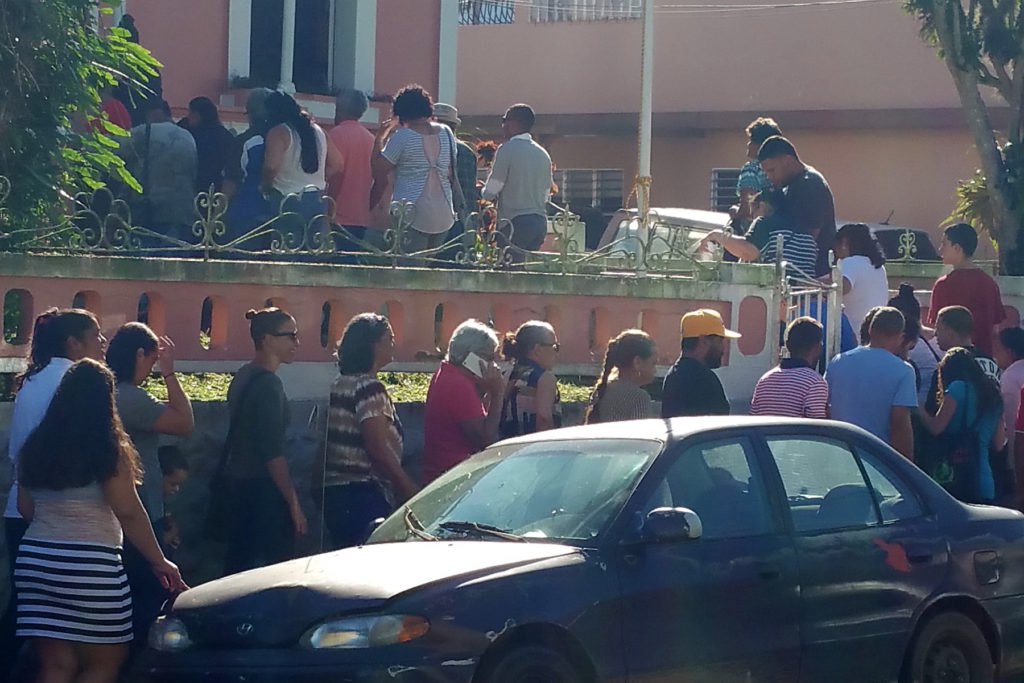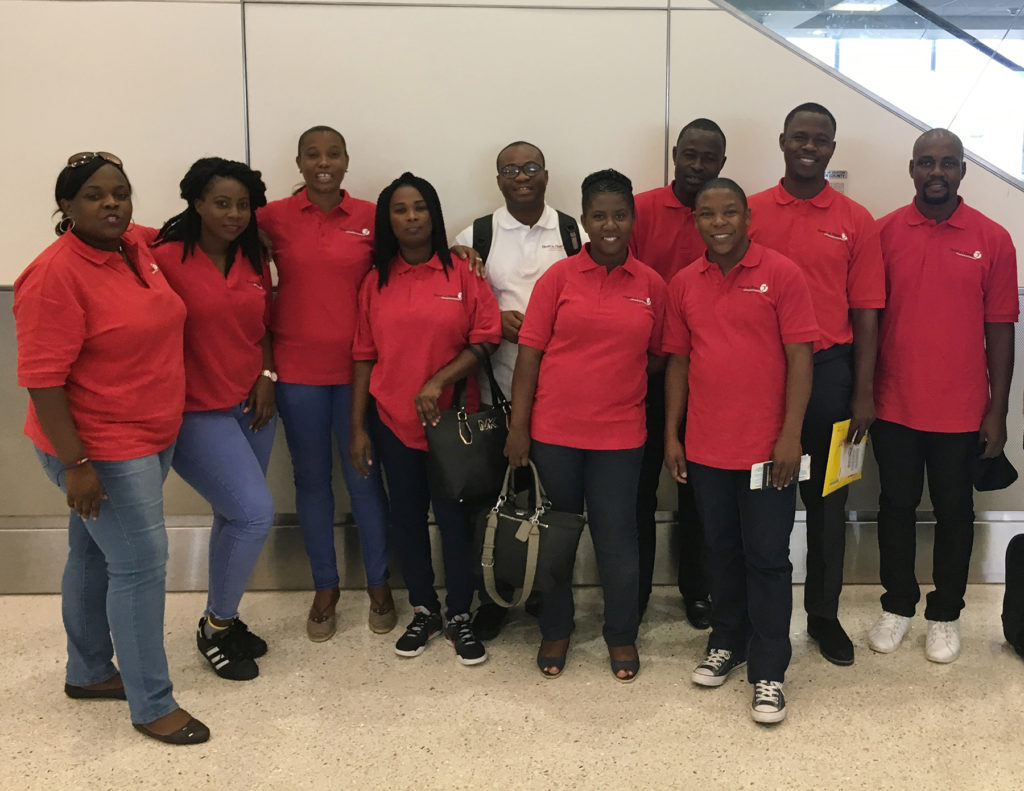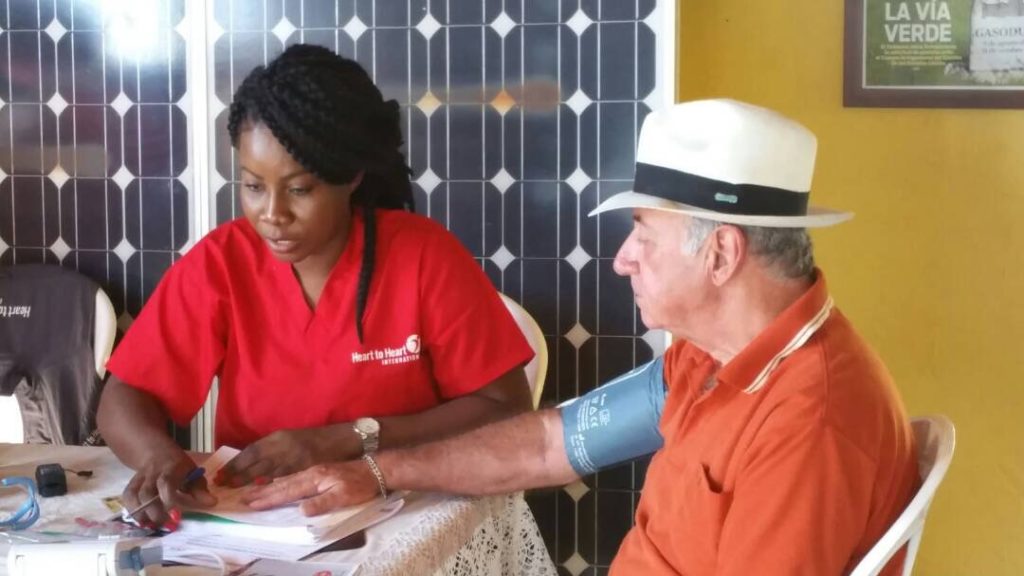After Hurricane Maria tore through Puerto Rico on September 20, the island was left without power, clean water or communication capabilities. People were in desperate need of help. And, on October 6, that help arrived from a most unexpected spot on the globe: the tiny island nation of Haiti, which itself is well-versed in the damage and destruction caused by natural disasters.
Working through Heart to Heart International, a team of doctors, nurses and logistics personnel traveled from Haiti to Puerto Rico to help in a way only they can. The 10 Haitians brought medical and humanitarian aid, but perhaps most importantly, they brought their own experiences of living through disasters, and with that, the hope that life does continue. “People see us coming, and they start crying, saying: ‘Oh, we’re so glad you’re here. You came from Haiti to help us. Thank you, thank you, thank you,'” Josue Andre, Director of Programs for Heart to Heart International – Haiti, said.

They also know what it’s like to treat people who have just lived through a hurricane because less than a year ago, that was them. They know what to look for, what issues are common, and what people need. With the abundance of mental health and stress-related problems the Haitian doctors have been seeing during their time in Puerto Rico, they know one thing the people of Puerto Rico need is hope. And they are there to provide it.
“Our presence itself is a type of cure because we’re Haitians. We’ve been through so many natural disasters: hurricanes, earthquakes,” Andre said. “We’ve been through all of that and made it through. And now have the strength to go out into the world and help other people. The people we’re treating see that and see us as hope and inspiration.”
In 2010, a 7.0 magnitude earthquake decimated Haiti, killing hundreds of thousands of people, destroying vital infrastructure, and changing the lives of everyone who lived on the island. Heart to Heart International sent in doctors, nurses and other medical volunteers to respond to the disaster. The Haitian people needed substantial support in creating a system for providing medical care to those who needed it, so after the initial disaster response, HHI shifted its focus to long-term community health services. Heart to Heart International – Haiti was developed, and through mentoring, training and development, staff in Haiti began running the entire operation themselves in country.
In October of 2016, the HHI – Haiti doctors and staff were challenged when Hurricane Matthew tore through Haiti as a Category 5 hurricane, destroying much of the island and adding to the already burdened system treating the cholera outbreak. When Hurricane Irma passed over the island in September of this year, Haiti suffered less destruction than in past disasters, but people still needed help. HHI-Haiti responded by sending a medical team to the town of Anse-á-
Foleur.
Less than three weeks later, with the team still treating patients in Anse-á-Foleur, HHI – Haiti watched as Hurricane Maria battered its way through the Caribbean, avoiding Haiti, but drowning the island of Puerto Rico. The Haitian people knew the pain Puerto Ricans were feeling. They’d lived it themselves. And, they knew they wanted to help. They wanted to be the ones giving aid, not receiving it.
“We have a history of helping other nations; of reaching out to those in need. That’s our history,” Andre said, referring to Haiti’s history of helping nations fight for independence throughout history, including Haitian soldiers fighting for America in the Revolutionary War in 1779. “We have this mentality to be on the side of those in need. We’ve been losing that sense of reaching out because we’ve been on the receiving end for so long. But, that’s our history.” Heart to Heart International had been looking for an out-of-the-box way to effectively help Puerto Rico after the hurricane. This included finding ways to send in doctors who could communicate with patients without translators.
“We had this team of well-experienced and trained doctors in Haiti who could speak Spanish and who wanted to go. They wanted to help,” Jim Mitchum, CEO of Heart to Heart International.
Mitchum and Gary Morsch, co-founder of Heart to Heart International, knew obtaining the paperwork for Haitians to go into Puerto Rico and serve as medical humanitarian relief workers was going to be an unprecedented feat. Together, Morsch and Mitchum met with the Secretary of Health and Assistant Secretary of Health for Puerto Rico to explain the situation and the unique qualifications the Haitian doctors have to help the people of Puerto Rico. Having worked with five of the team members for years with HHI, including one since the 2010 earthquake, Morsch and Mitchum could vouch for the team’s capabilities. And, for the first time in history, a letter of approval was given to Heart to Heart International to bring doctors from Haiti into an American territory to treat disaster victims.

Natural disasters have brought a unique perspective and understanding to both Haiti and Puerto Rico. Having lived through disasters, Andre thought he knew exactly what to expect from going into Puerto Rico. But, he was not expecting to learn a lesson himself. “I now realize that I can take back to Haiti how to be on the receiving end of aid. We’ve been receiving aid for so long, I think we’ve forgotten how to do it,” Andre said. “I’ve learned what it is to be welcomed, and I can bring that back to Haiti.”
The two Caribbean islands may be more than 300 miles apart, but the people living on them are actually much closer than they could have imagined.


